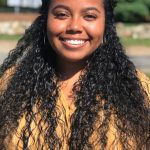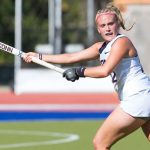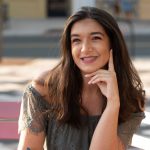Tara Amatrudo has been hired as the new principal at Marine Science Magnet High School in Groton. Amatrudo earned her undergraduate and master’s degrees from Southern Connecticut State University and her Sixth Year Professional diploma at the University of Connecticut.
With the recent transition from educating in the classroom to the virtual realm due to the pandemic, the teaching world has changed drastically. We wanted to hear from Neag School alumni now serving as teachers about how they are managing the online teaching and learning environment.
“Sport went from being kind of like a safe haven [for me] to something that transformed into something that I really value, but really wanted to pour into others,” Batouly Camara said. “I understood what it did for me at a young age, and I’m still forming what it means to me now. But I know that it’s a huge part of everything that I do and everything I want to do in the future.”
“I am proposing … that we need to adopt a different approach to school and curriculum during the three or four months this lasts,” says Elena Sada, a doctoral student in curriculum and instruction at the Neag School.
“As parents and other guardians get ready to prepare their teens for college, they should not neglect helping those new college students in terms of their overall well-being. Well-being is influenced by lots of factors, so an important part of supporting your wellness is to create a personal plan of action,” says Sandra Chafouleas a professor of Educational Psychology at the Neag School of Education.
“There are more immediate budget concerns on the front burner, because education and distance learning and planning for the next fiscal year are probably on the horizon,” Bob Villanova said. “The immediate push is making sure that educational opportunity and moving ahead are real to every student.”
“I will forever be grateful that I chose this prestigious institution to shape me into the educator I am today.”
“I aspire to be a teacher who focuses on making meaningful connections with my students and emphasizes the importance of including engaging and socially conscious content.”
“I aspire to be the best version of myself and be a continuous learner throughout life, and I want to positively impact others and inspire them to be become their best version, too.”
“UConn has given me the communication skills, creativity, leadership skills, and helped to spark a passion for my career as an educator.”





